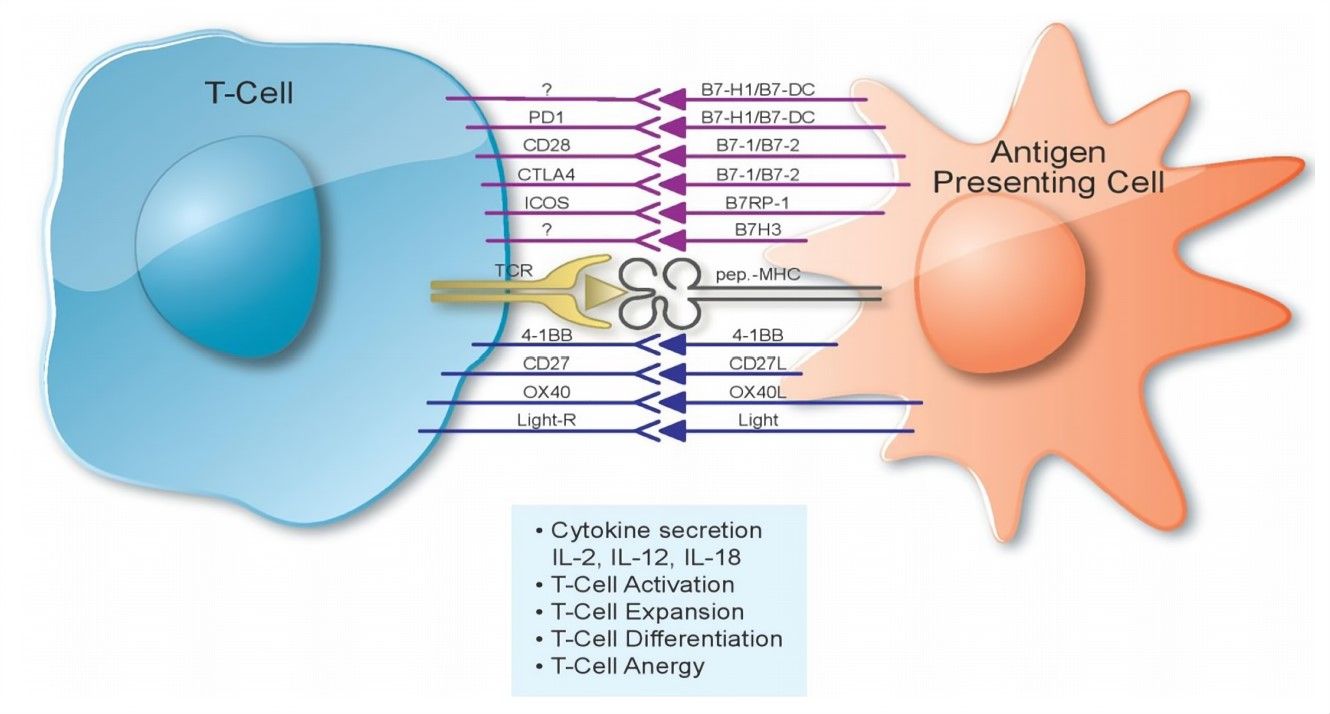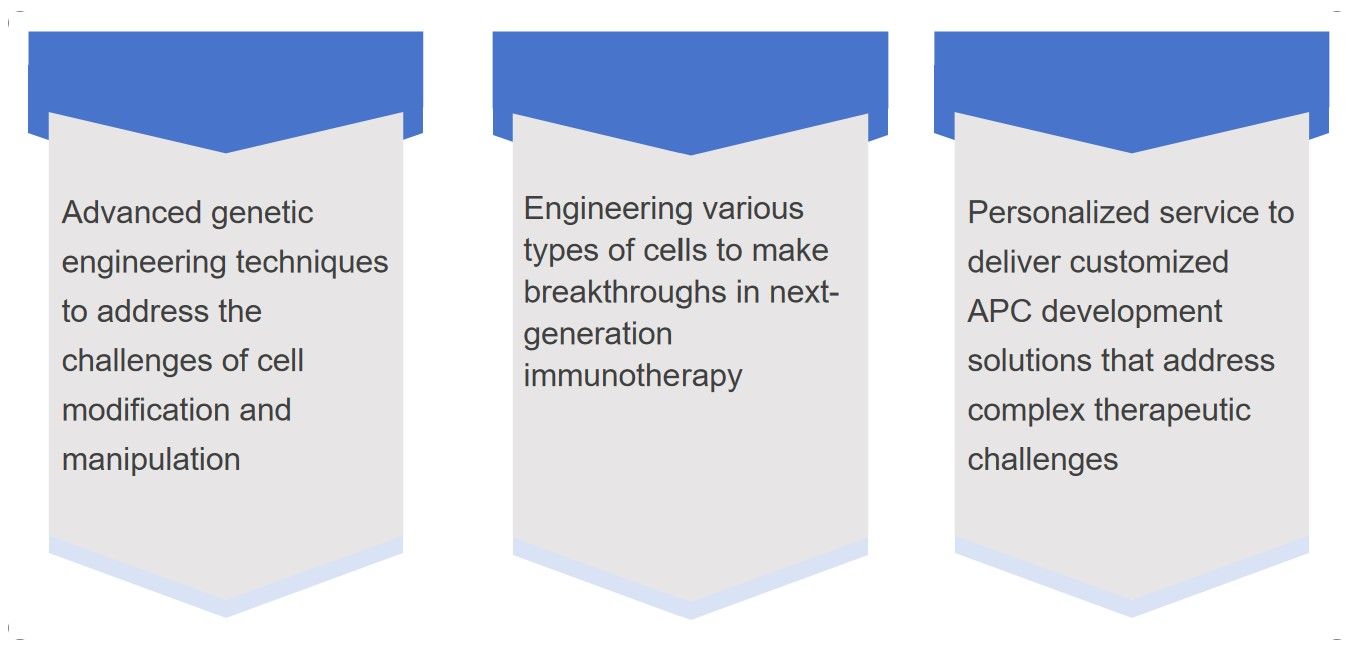Next-Generation Antigen-Presenting Cell-based Cancer Immunotherapy Development Services
The Role of Antigen-Presenting Cells in Immunotherapy
Antigen-presenting cells (APCs) play a crucial role in cancer immunotherapy. These are specialized immune cells that capture antigens from cancer cells and present them to other immune cells, such as T cells, to mount an immune response against the cancer. In cancer immunotherapy, APCs are utilized to enhance the body's natural immune response against tumors. APCs and their role in cancer immunotherapy hold great promise for the development of more effective and targeted treatments against various types of cancers. The approach of APC development involves extracting APCs from a patient's blood, loading them with tumor antigens, or using vaccines that contain tumor antigens to activate APCs directly. The continuous advancement of cancer immunotherapy has led to the emergence of next-generation APCs that promise to revolutionize the field. Recent advancements in cancer immunotherapy involve modifying cells such as dendritic cells to enhance their antigen-presenting function.
 Fig.1 The interaction of T cells and APCs.1
Fig.1 The interaction of T cells and APCs.1
Our Services
The novel APCs are designed to improve upon the traditional functions of APCs, enhancing their ability to present antigens and stimulate an immune response against cancer cells. One of the key innovations in next-generation APC development is the use of genetically engineered cells, which allow for the manipulation of cellular processes and the enhancement of antigen-presenting functions. As a cutting-edge biotechnology company in immunotherapy, Creative Biolabs provides one-stop cell engineering services. Our experts specialize in the development of novel APCs, thus harnessing the power of APCs to fight cancer. By utilizing state-of-the-art technology and a deep understanding of immunology, our experts engineer various types of cells for immunotherapy.
Creative Biolabs offers a comprehensive range of APC development services to address the most pressing challenges in cancer immunotherapy. Our cutting-edge APC development services encompass allogeneic, xenogeneic, and autologous cell engineering.
-
Immune Cells Engineering Service
In addition, we also engineer immune cells, such as T cells, dendritic cells, tumor-infiltrating lymphocytes (TIL), induced pluripotent stem cells (iPSC), and peripheral blood mononuclear cells (PBMC), for cancer immunotherapy, allowing researchers to choose the most suitable cell types for their research and therapeutic applications.
By engineering cells to secrete antigens or immune adjuvants, we can create powerful stimuli to activate the immune system. This approach can be used to develop novel vaccines or therapeutic agents for cancer and other diseases.
Red blood cells (RBCs) can be engineered to express antigens or to carry therapeutic molecules. By utilizing RBCs as activating antigen carriers, we can develop novel strategies to facilitate the activation of T cells and subsequently target cancer cells, resulting in a potent and specific immune response.
Highlights

Reference
-
Hasan, A. N., A. Selvakumar, and R. J. O'reilly. "Artificial antigen-presenting cells: an off-the-shelf approach for generation of desirable T-cell populations for broad application of adoptive immunotherapy." Advancements in genetic engineering 4.3 (2015). Distributed under Open Access license CC BY 4.0, without modification.
For Research Use Only | Not For Clinical Use


 Fig.1 The interaction of T cells and APCs.1
Fig.1 The interaction of T cells and APCs.1

 Download our brochure
Download our brochure